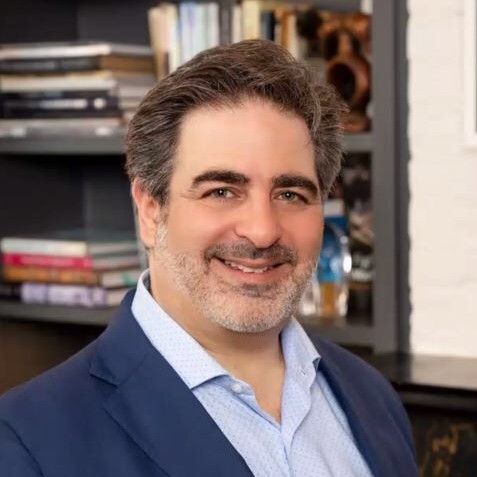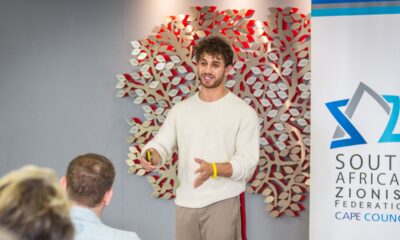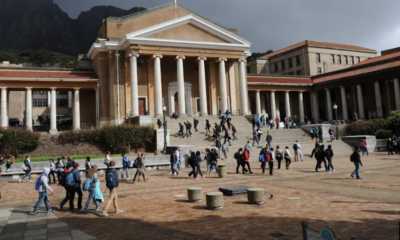
News

UCT fund board chair cut ties due to anti-Israel stance
For more than two decades, Trevor Norwitz chaired the board of the University of Cape Town Fund (UCT Fund), the American alumni and fundraising arm of the University of Cape Town (UCT). However, the UCT Council’s “statement on the crisis in Gaza” published on 7 December 2023 made him decide to end that relationship.
In his official resignation statement, Norwitz said, “I can no longer in good conscience be associated with UCT. The council statement, while varnished with a thin veneer of impartiality, reflects an institution which has lost its moral bearings, even its regard for the truth, which should be sacred to any institution of higher learning.
“The suffering of innocents in Gaza is terrible and tragic, but it’s the terrorist organisation Hamas and not Israel that’s overwhelmingly to blame for that suffering,” he wrote. “And, as I have been writing for years, that blame is shared by those – now joined by the UCT Council – who irresponsibly, even if unwittingly, give Hamas so much encouragement rather than insisting that they be held accountable for their heinous crimes.”
His resignation followed months of UCT allowing flags of internationally-designated terrorist organisations Hamas, Hezbollah, and Palestinian Islamic Jihad to be displayed on its campus, and for the UCT Palestinian Solidarity Forum (UCT PSF) to invite representatives of these organisations to address students. On 7 October, the UCT PSF cheered the massacre. The same students proudly met Hamas representatives when they visited South Africa in December. All this is recorded on the UCT PSF Instagram profile.
Now, speaking to the SA Jewish Report, Norwitz says, “For a long time, the criticism of Israel on campus was – or at least was purported to be – aimed at things Israel did or failed to do, and not at its very existence. Saying that Israel shouldn’t exist or that the Jewish people didn’t have the right to self-determination wasn’t considered an appropriate position to espouse publicly. But in the past few years – and not just in South Africa – it has become acceptable to talk about Israel as a ‘settler-colonial-apartheid state’ which has no right to exist. This fallacious characterisation is then used to legitimise any action against Israel, even the heinous atrocities of 7 October.
“There are elements in the UCT leadership that have this eliminationist position, but they haven’t been the dominant voices up to now,” Norwitz says. “Unfortunately, it seems those voices have become much more powerful. It’s difficult – if not impossible – to engage constructively with someone who can be satisfied only by you ceasing to exist.”
Norwitz says that through previous engagement with UCT leadership, including the members of the council, “We on the UCT Fund board had been led to believe that, while there was a small group of students at UCT who supported murderous groups like Hamas or Hezbollah, they were so radical that they turned off most students and even though they occasionally engaged with terrorist groups, this was aberrational and not a threat to Jewish students on campus.
“I hope this is and remains true. I do fear, however, that, in an environment in which the very leadership – that is, the council – shows itself to be virulently anti-Israel, those radical voices will grow and Jewish students will feel cowed into silence, if not actually unsafe.”
As for how he came to the decision to resign, he says, “I was chairperson of the UCT Fund for more than 20 years, and that’s much too long anyway. Truth be told, I had been asking them to find a new chairperson for years but had been willing to serve in that role until they did. However, after the outrageous council statement – which at best drew a moral equivalence between Israel and Hamas, but actually showed a strong leaning in favour of Hamas – I could simply no longer be the public face of the university in the United States.
“After 7 October, the UCT Fund board engaged with the university leadership to make sure that Jewish students were safe and that radical anti-Israel activity didn’t get out of hand. The council’s statement took us by surprise. It knew how seriously we and many alumni felt about this, so the statement felt like a personal and communal betrayal.”
Regarding UCT’s response to his resignation, “It was unfortunate that it missed the main point. I wasn’t accusing the university of antisemitism, and it’s a pity that it didn’t treat it as an opportunity for self-reflection. I continue to hope that it will see the folly of its ways, and tone down the rhetoric in a manner that becomes a top university.”
He believes “UCT should be a place where freedom of expression reigns and the truth is the ultimate value. There will always be radical views, and they shouldn’t be shut down, although there must be policies against bullying, incitement to violence, and so on, so that students and faculty feel safe. As I understand it, the council’s role is to ensure that the university adheres to these standards and not to weigh in on these debates, and historically as far as I’m aware, it hasn’t done so. Unfortunately, in this case, the council put politics before truth.”
In his statement, Norwitz said, “UCT is a vital and vibrant institution and if it has lost its way, I’m confident it will find its way back.”
Now, he adds, “Deep down, I believe good and truth will prevail. Sadly, this may take some time. This is especially so in an age when most young people get their ‘news’ from sites like TikTok and X/Twitter, which aren’t only run by algorithms designed to drive people into more radical positions, but are manipulated by malicious governments and elements for political purposes. UCT is at a vital crossroads, about to choose a new leader. Who and how it chooses will make a huge difference to how long it takes it to find its way back.
“What should happen is that the UCT Council should retract its statement, or at least acknowledge that it was injudicious, inappropriate, and deeply offensive to constituencies of the university,” says Norwitz. “Going forward, the council should focus on protecting the university rather than weighing in with political positions. Or, if it decides that its role is a political one – which would be a mistake – it should be consistent and not just single out Israel. In an ideal world, the UCT Council wouldn’t include supporters of terrorist groups like Hamas.”
When it comes to others supporting UCT, Norwitz says, “Everyone must make their own decision. I would encourage people to stay engaged to get UCT to behave in a moral and responsible manner. Jewish students should still go to UCT, but it will take great internal fortitude and intellectual courage to remain a proud Jew and supporter of Israel’s right to exist in the face of the virulent anti-Zionism that has taken hold on campus, and which at least for the moment, seems to be endorsed by the university leadership itself.”











Cynthia Barmor
January 25, 2024 at 5:25 pm
What on earth took you so long? But better late than never.
SA Jews should pull all their abilities, funding and support from organizations and institutions that willfully bash Israel.
My two cents worth.